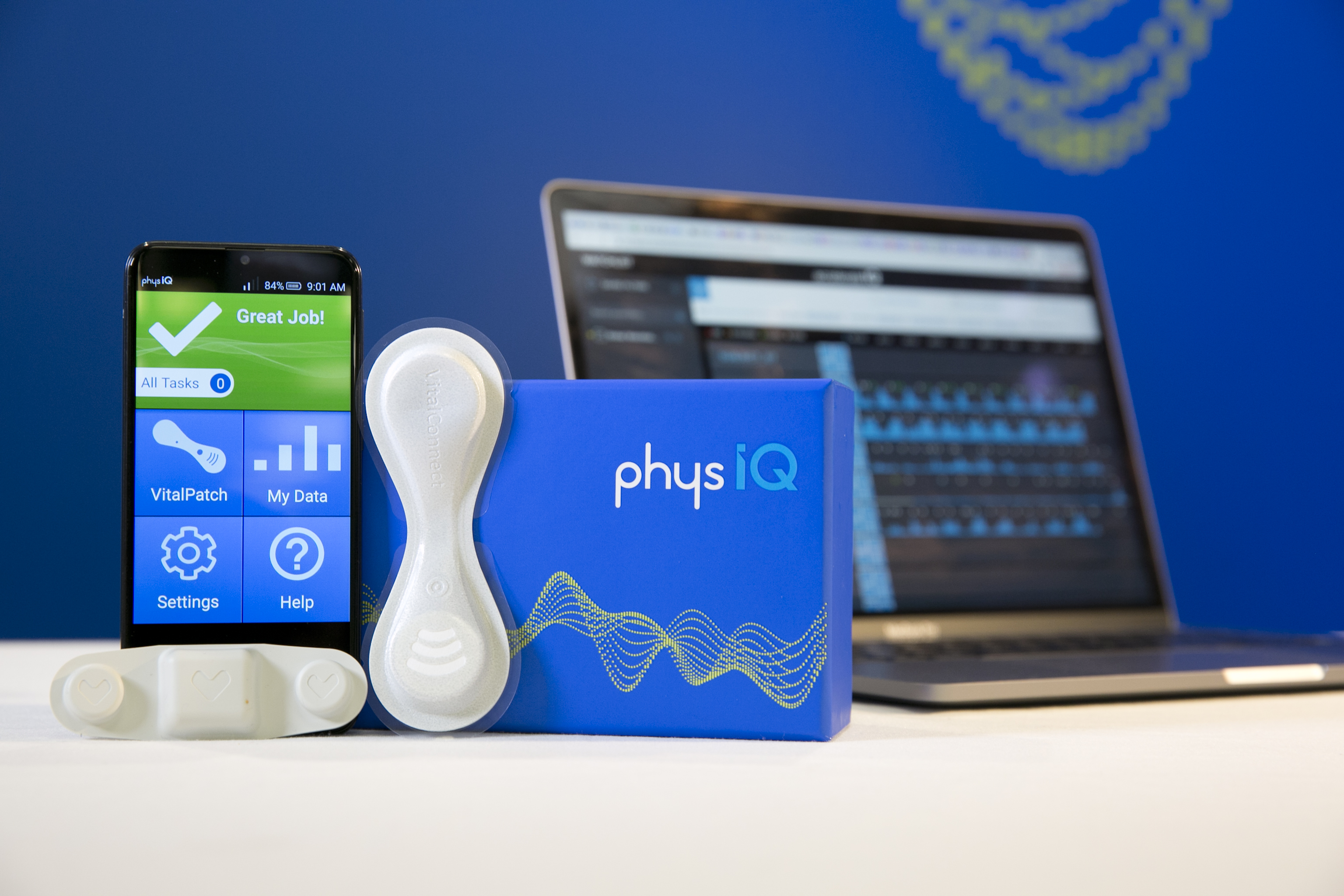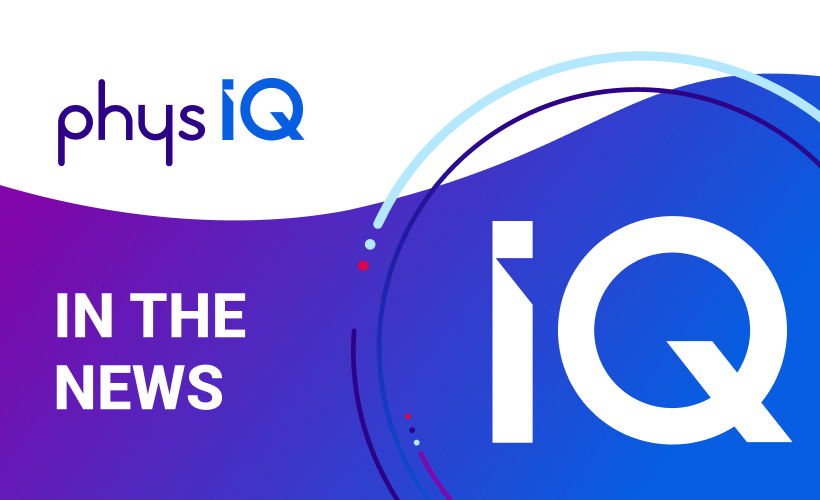Inside an Individual’s Physiological Signature
Originally published in Medical Device & Technology

Originally published in Innovate: Innovations of the World
Technology Pioneered to Predict Failure of Mission-Critical Industrial Equipment Delivers Powerful Platform to Protect the Most Complex “Machine” of All – the Human Body
A leader in digital medicine, dedicated to generating real-time health insight via physiological data and patented artificial intelligence (AI) analytics, physIQ is on a mission to transform healthcare. The physIQ enterprise-ready cloud platform is designed to continuously collect and process data from any wearable biosensor using an expanding portfolio of FDA-cleared biomarker analytics. The company recently published one of the most rigorous clinical studies to date in digital medicine, and is widely regarded as a pioneer in developing, validating and achieving regulatory approval for AI-driven digital technology for healthcare and life sciences.
Determined Innovator Seeks Transformational Change
Chicago’s claims to fame run the gamut from celebrated music and literary festivals to world-class museums and architecture. A tremendous synergy fuels innovation in our region, which boasts exceptional medical, science and engineering talent backed by some of the nation’s most prestigious healthcare, research and business organizations. This dynamic atmosphere fuels innovation. Not surprisingly, Chicago is home to more than its fair share of game-changing technologies from the first cell phone to the first wireless TV remote. Company founders and the leadership team at physIQ have set their sights on earning a place on that list.
The physIQ origin story began over two decades ago when the Argonne National Laboratory and the University of Chicago were brought together by the Department of Energy to build a solution to predict (and prevent) future nuclear power plant meltdowns. The result was a specialized machine learning approach using sensor data from various reactor components to learn how the nuclear reactor operates based on its unique signature—and to detect subtle anomalies or changes in the sensor streams. The approach was so unique and successful that SmartSignal was founded by Gary Conkright to commercialize applications in nuclear power generation and other uses, including revolutionizing the air travel industry by enabling airlines to monitor all jet engines across their fleets. Although the company was acquired by GE Intelligent Platforms, Conkright, who retained licensing rights for healthcare uses, was already forging ahead on the next leg of the journey.
physIQ co-founders Conkright, Stephan Wegerich, the original inventor and scientist from Argonne, and Matt Pipke never wavered in their motivation to bring about transformational change by applying machine learning to the most complex machine of all—the human body. They embarked on developing and commercializing an advanced biosensor analytics platform to accommodate the unknowns of a rapidly-evolving regulated digital medicine landscape—compatible with any sensor, any data type and any algorithm. The medical-grade solution for collecting and analyzing continuous, near-real-time streaming data is one of a kind in the industry.
Today, physIQ delivers uniquely personalized patient health data using wearables and artificial intelligence to help clinicians deliver more proactive care to patients and enable life sciences companies to get their life-saving drugs to market faster. The highly scalable physIQ platform can support nearly any real-time post-acute care use cases, clinical trials and retrospective data analyses.
Game-Changer in Healthcare Delivery
The physIQ pinpointIQ™ solution leverages the patient biosensor insights to ensure that clinicians are engaging with their most critically ill patients. When doctors and nurses are able to detect subtle changes in biosensor data early – often before a patient even notices symptoms – they can intervene proactively and act sooner to help prevent adverse events. For example, the solution has been deployed to detect the risk of impending heart failure exacerbation in patients with congestive heart failure up to ten days in advance.
Most recently, the COVID-19 pandemic demonstrated the impact of physIQ in helping healthcare professionals expand their reach, capacity and care of high-risk patients convalescing at home and establish a first-of-its-kind COVID-19 Decompensation Index (CDI). Funded by the National Institutes of Health (NIH) and in collaboration with the University of Illinois Hospital and Health Systems, physIQ solutions are monitoring thousands of COVID-19 patients served by NorthShore Hospital, Rush University Medical Center, Duke University Hospital, UT Health, and more.
An Accelerator of Clinical Trials
In clinical trials, the physIQ accelerateIQ™ solution integrates AI and meaningful analytics to turn raw data into real-world insights allowing researchers to more quickly bring new and more effective treatments to market. For example, it can help detect physiological anomalies in patients during and after cancer fighting treatments to proactively identify and manage adverse events that may result from chemotherapy and immunotherapy, and to potentially establish safety-related digital biomarkers.
Janssen Pharmaceuticals, Inc. (a Johnson & Johnson company) is deploying physIQ’s accelerateIQ to analyze data from wearable biosensors and digital biomarkers utilized for clinical studies and commercial applications across multiple therapeutic areas. Its strategic relationship with physIQ will help expedite the ability to bring new treatments to market and enable innovative commercial strategies that incorporate digital medicine into patient care.
physIQ is committed to helping providers and life sciences companies advance patient care by capitalizing on the value of actionable, continuous near real-time patient data. physIQ shares the industry’s vision to put patients at the center of the care paradigm, using digital medicine as a critical enabler to help save lives through earlier intervention and new therapies.

Originally published in Medical Device & Technology

Originally published in Pixel Scientia Labs

Originally published in Crain's Chicago